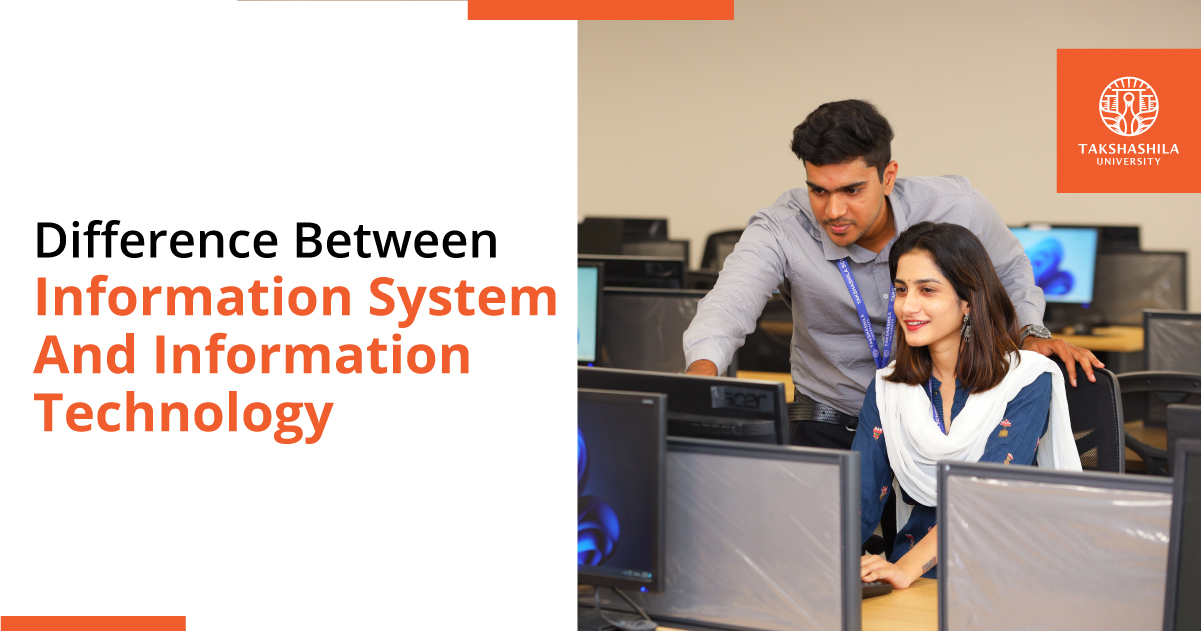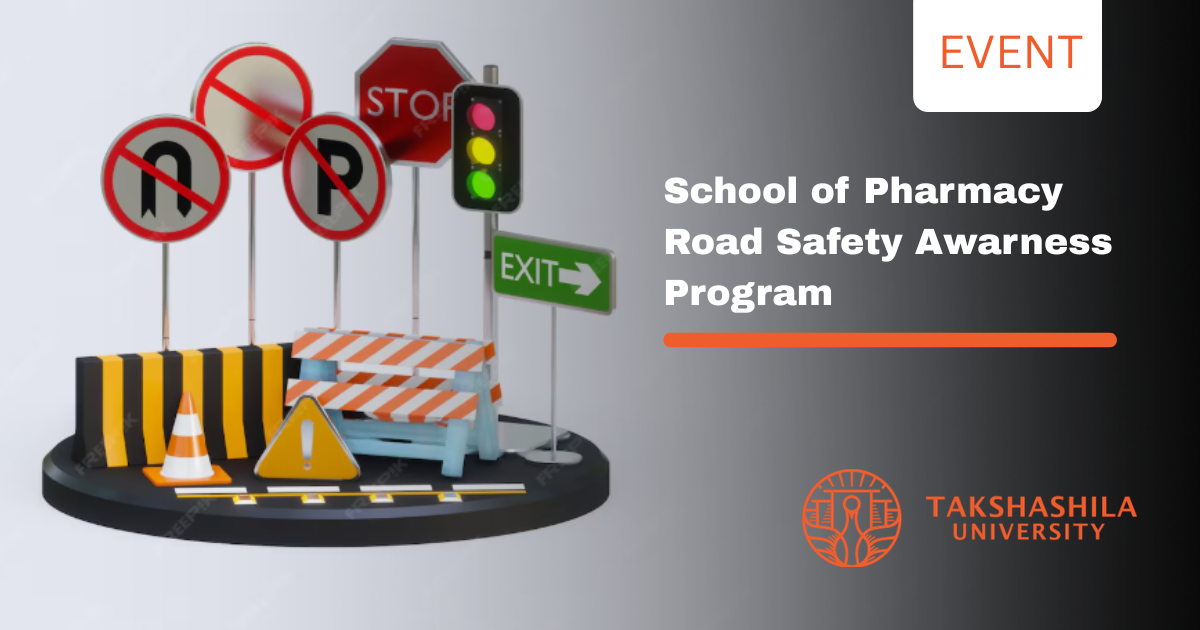We all know that information systems (IS) and information technology (IT) drive innovation and productivity in every industry. But do you understand the difference between these two key areas to start your career? In this blog, we will explain everything you need to know so that you can make an informed decision.
Information Systems And Information Technology: What Are They?
Before learning the difference between Information System and Information Technology, let’s know what they are.
Information Systems: Overview
Information Systems (IS) cover interconnected components that collect, process, store, and distribute data or information to aid organisation decision-making. It’s all about processes, people, and technology working together to achieve business goals.
Core Characteristics Of Information Systems
Here are the key components of Information Systems (IS)
- Data Integration
- Data Support
- Cross-functional
- Business Process Integration
- User-centric Design
Information Technology: Overview
IT refers to the technical infrastructure and tools to store, process, retrieve, and communicate data. It encompasses hardware and software, networks, and services facilitating data processing and management.
Core Components Of Information Technology
Here are the key components of Information Technology (IG)
- Hardware
- Software
- Networking
- Data Storage
- Cybersecurity
Understanding The Overlap
Though IS and IT are different, they have a notable overlap.
- Information Systems rely on Information Technology infrastructure for data processing, storage and communication.
- Information Technology gives the tools and platforms necessary for developing and deploying Information Systems.
Difference Between Information System And Information Technology
The experts of Takshashila University highlight the primary differences between Information Systems and Information technology.
| Aspect | Information Systems (IS) | Information Technology (IT) |
| Focus | Information Systems emphasises processes, decision support, and information management | Information Technology emphasises hardware, software, networks, and technology infrastructure |
| Purpose | Information Systems (IS) aims to enable efficient data-driven decision-making | The purpose of Information Technology (IT) is to facilitate the storage, processing, and transmission of data. |
| Components | The core component of Information Systems (IS) includes data, processes, people, and technology | The core components of Information Technology (IT) include hardware, software, networking, and cybersecurity |
| Goal | The goal of Information Systems (IS) is to enhance organisational processes and decision-making | The goal of Information Technology (IT) is to ensure the availability, integrity and security of data |
| Skill Sets | Data analysisProcess optimisationProject management | ProgrammingSystem maintenanceCybersecurity |
Roles And Payscale
Here are some job roles in Information Technology (IT) and Information Systems (IS) and their respective salary prospects.
Information Systems: Job Roles And Salary Prospects
| Job Role | Salary |
| Business Analyst | INR 4 to 12 lakhs per annum |
| Data Analyst | INR 3.5 to 10 lakhs per annum |
| IS Manager | INR 8 to 20 lakhs per annum |
| Database Administrator | INR 5 to 15 lakhs per annum |
| IT Consultant | INR 6 to 18 lakhs per annum |
| Systems Analyst | INR 4.5 to 12 lakhs per annum |
| Business Intelligence Analyst | INR 4 to 12 lakhs per annum |
| Project Manager | INR 7 to 18 lakhs per annum |
| Quality Assurance Manager | INR 3.5 to 10 lakhs per annum |
| IT Auditor | INR 6 to 15 lakhs per annum |
Information Technology: Job Roles And Salary Prospects
| Job Role | Salary |
| System Administrator | INR 4 to 12 lakhs per annum |
| Software Developer | INR 3.5 to 15 lakhs per annum |
| IT Support Specialist | INR 3 to 8 lakhs per annum |
| Network Engineer | INR 5 to 18 lakhs per annum |
| Cybersecurity Analyst | INR 5 to 18 lakhs per annum |
| Cloud Solutions Architect | INR 7 to 20 lakhs per annum |
| DevOps Engineer | INR 6 to 18 lakhs per annum |
| IT Project Manager | INR 7 to 20 lakhs per annum |
| Database Administrator | INR 5 to 15 lakhs per annum |
| AI and ML Engineer | INR 6 to 20 lakhs per annum |
Education And Training
Information Systems (IS):
- Educational paths: You can take up degrees in Business Administration, Management Information Systems (MIS) or related fields
- Certifications: You can finish your certification course in Certified Business Analysis Professional (CBAP) and Certified Information Systems Manager (CISM)
- Skill development: Gain expertise in process optimisation, data analysis, and project management
Information Technology (IT):
- Educational paths: You can take up degrees in Computer Science, Information Technology, or related disciplines
- Certifications: You can finish your certification course in CompTIA A+, Cisco Certified Network Associate (CCNA), Certified Information Systems Security Professional (CISSP), etc.
- Skill development: Gain expertise in programming, system administration, cybersecurity, and cloud computing
Industries And Applications
Both Information Systems (IS) and Information Technoloy (IT) are used in various industries and sectors.
| Industry | Information Systems (IS) | Information Technology (IT) |
| Healthcare | Electronic Health Records (EHR) systems, patient management, and clinical decision | Medical imaging technology, telemedicine, and health information systems |
| Finance | Banking systems, risk assessments and fraud detection | High-frequency trading platforms, online banking and financial analytics |
| Retail | Inventory management, point-of-sale systems, and customer management | E-commerce platforms, supply chain management, and demand forecasting |
| Education | Learning management systems (LMS), student information systems (SIS), and online course platforms | Educational technology (EdTech tools), interactive whiteboards, and virtual classrooms |
| Agriculture | Precision agriculture, weather forecasting, and crop management | IoT sensors for soil monitoring, drones for crop inspection, and farm management software |
| Entertainment and Media | Content management system (CMS), digital asset management and audience analytics | Streaming platforms, content delivery networks (CDN), and virtual reality (VR) experiences |
Other industries include
- Legal and Compliance
- Non-profit and Social Services
- Hospitality and Tourism
- Aerospace and Defense
- Energy and Utilities
- Transportation and Logistics
- Government and Public Sector
- Manufacturing
Challenges And Trends
Here are the challenges and trends faced by Information Technology (IT) and Information Systems (IS), influenced by emerging technologies.
Challenges:
- Information Systems- Ensuring data accuracy and privacy, aligning with evolving business needs
- Information Technology- Cybersecurity threats, hardware maintenance, and software updates
Trends:
- Information Systems- Following data analytics, artificial intelligence, and machine learning for smarter decision support
- Information Technology- Cloud computing, Internet of Things (IoT), and increased focus on cybersecurity measures
Choosing Between IS And IT
Before choosing between Information Systems (IS) and Information Technology (IT), evaluate both the fields.
A). Do you have a passion for data analysis, process optimisation, and aiding decision-making?
(or)
B). Do you want to thrive in a world of technology infrastructure, software development, and cybersecurity?
If you choose ‘A’, you should opt for Information Systems (IS); if you select ‘B’, you can enter the Information Technology (IT) field.
Choosing between the two depends on individual interests, strengths, and career aspirations. Consider your passions, preferred skill sets, and long-term goals.
Why Choose Takshashila University For Your College?
Are you looking for the best university in India? Look no further than Takshashila University! It’s on a sprawling campus of over 150 acres and offers 64 courses.
You’ll get guidance from experienced teachers and experts to develop your skills and prepare for the real work world. Plus, the university has partnered with companies for convenient campus placements so that you can get job offers from big companies.
Sign up for the IT and IS courses and get ready for a successful career! You can use sports scholarships and academic grants to help with your finances.
Conclusion
Now that you know the difference between information system and information technology, we hope you will make an informed decision about your career.
Both Information Systems and Information Technology are the pillars of the digital age. By evaluating the distinctions and job roles, you can use the power of technology to achieve your goals in the ever-evolving tech landscape.
Frequently Asked Questions (FAQs)
1. What is the difference between Information Technology and Information Systems?
Information Technology (IT) deals with hardware, software and technology infrastructure. At the same time, Information Systems (IS) focuses on integrating IT with people, processes and data to facilitate decision-making and business operations.
2. What is the similarity between Information Technology and Information Systems?
Both Information Systems (IS) and Information Technology (IT) rely on technology to manage and process data efficiently and contribute to improved decision-making and business operations.
3. What is Information Technology examples?
Information Technology (IT) examples include computers, servers, networking equipment, operating systems and cybersecurity tools, etc. IT also includes services like cloud computing, data storage solutions, etc.
4. Does Information Systems have coding?
Information Systems involve coding for data analysis, database management, and software customisation. IS professionals use coding for scripting, creating database queries, and developing custom reports to support business processes and decision making.
5. Which is better, IS or IT?
If you are inclined towards data analysis and decision support, Information Systems (IS) will be an apt fit. If you are more drawn towards technology infrastructure and software development, IT could be the right choice. Choosing the best between IT and IS depends on individual interests and career goals.






